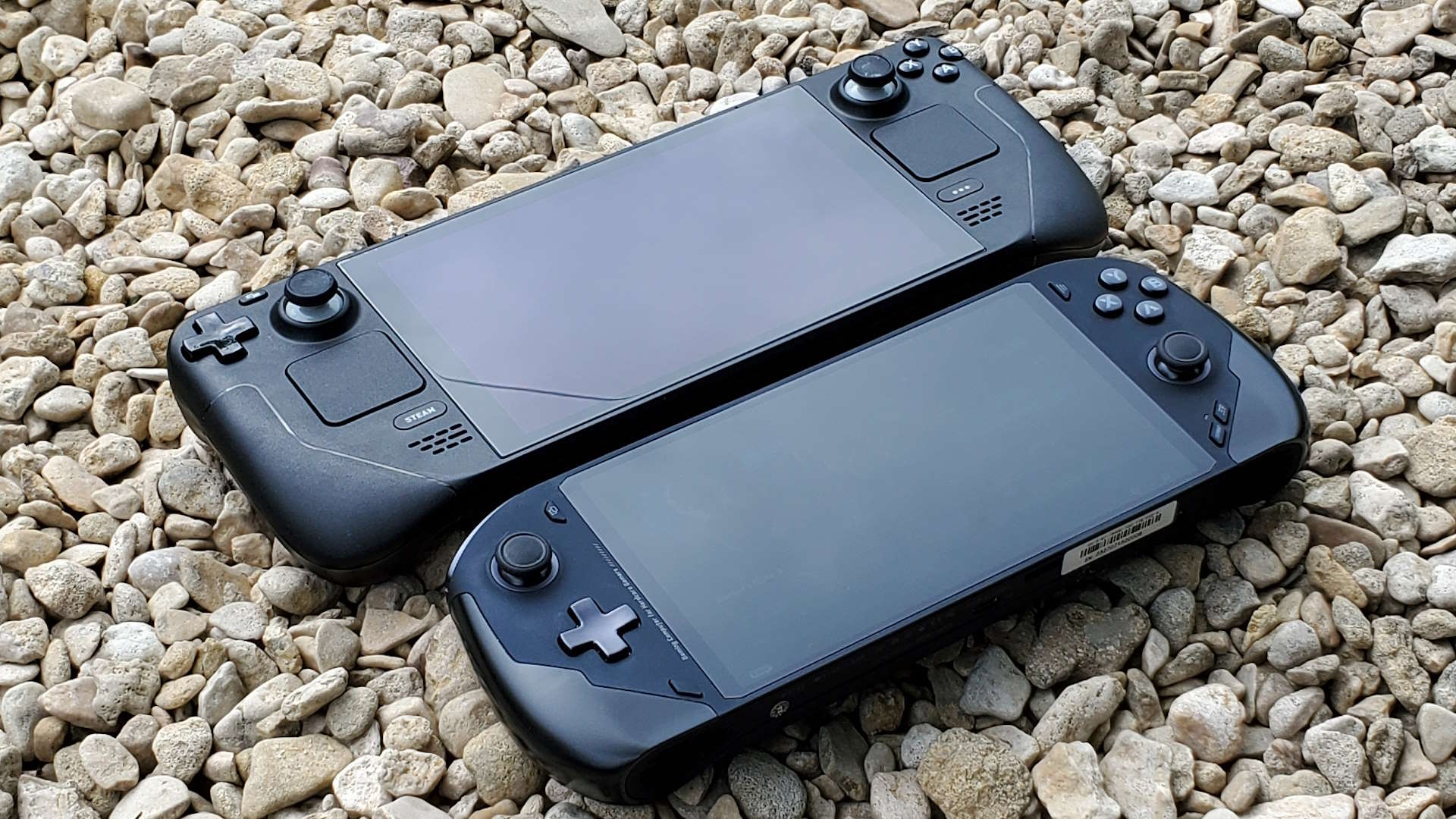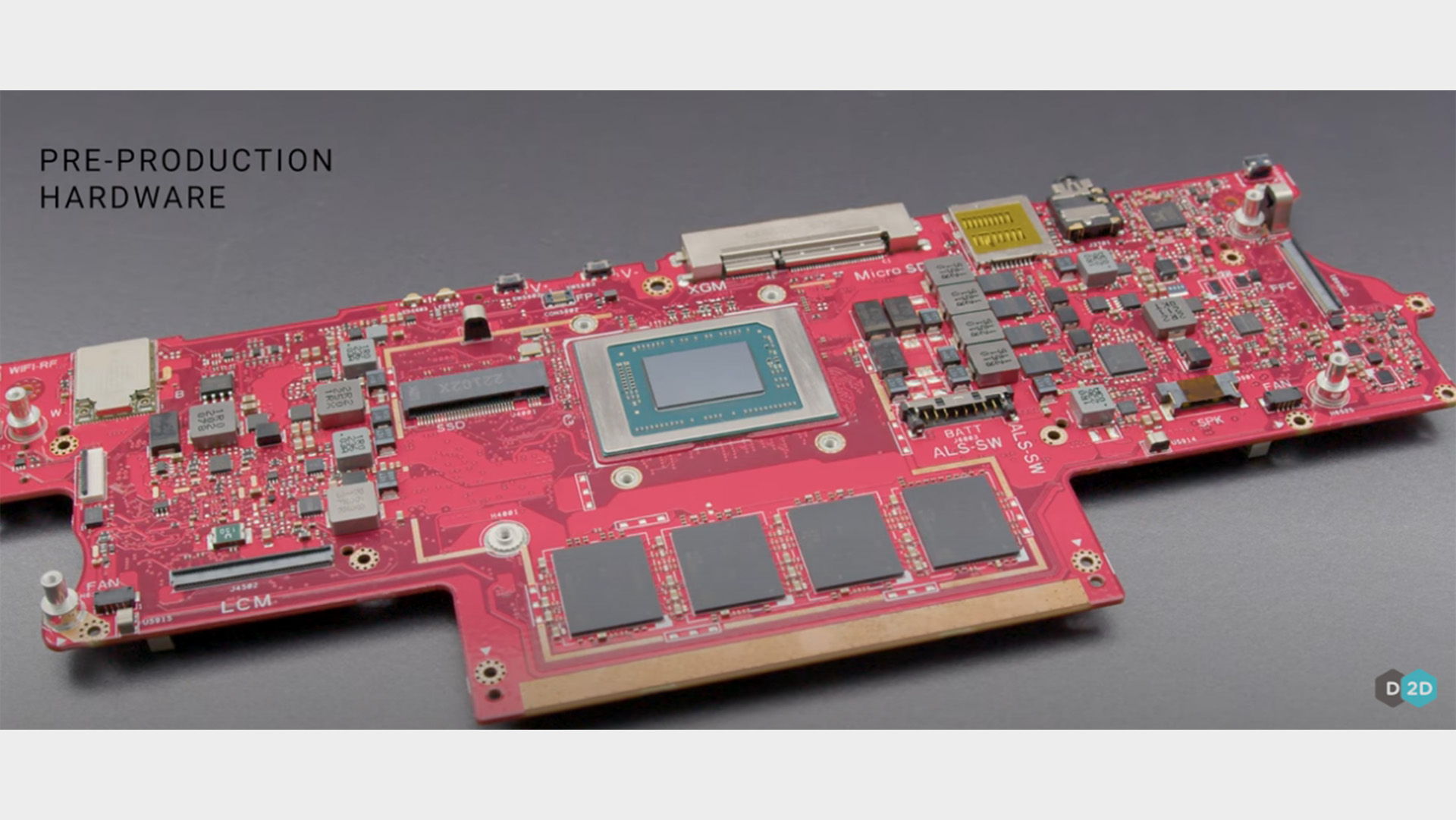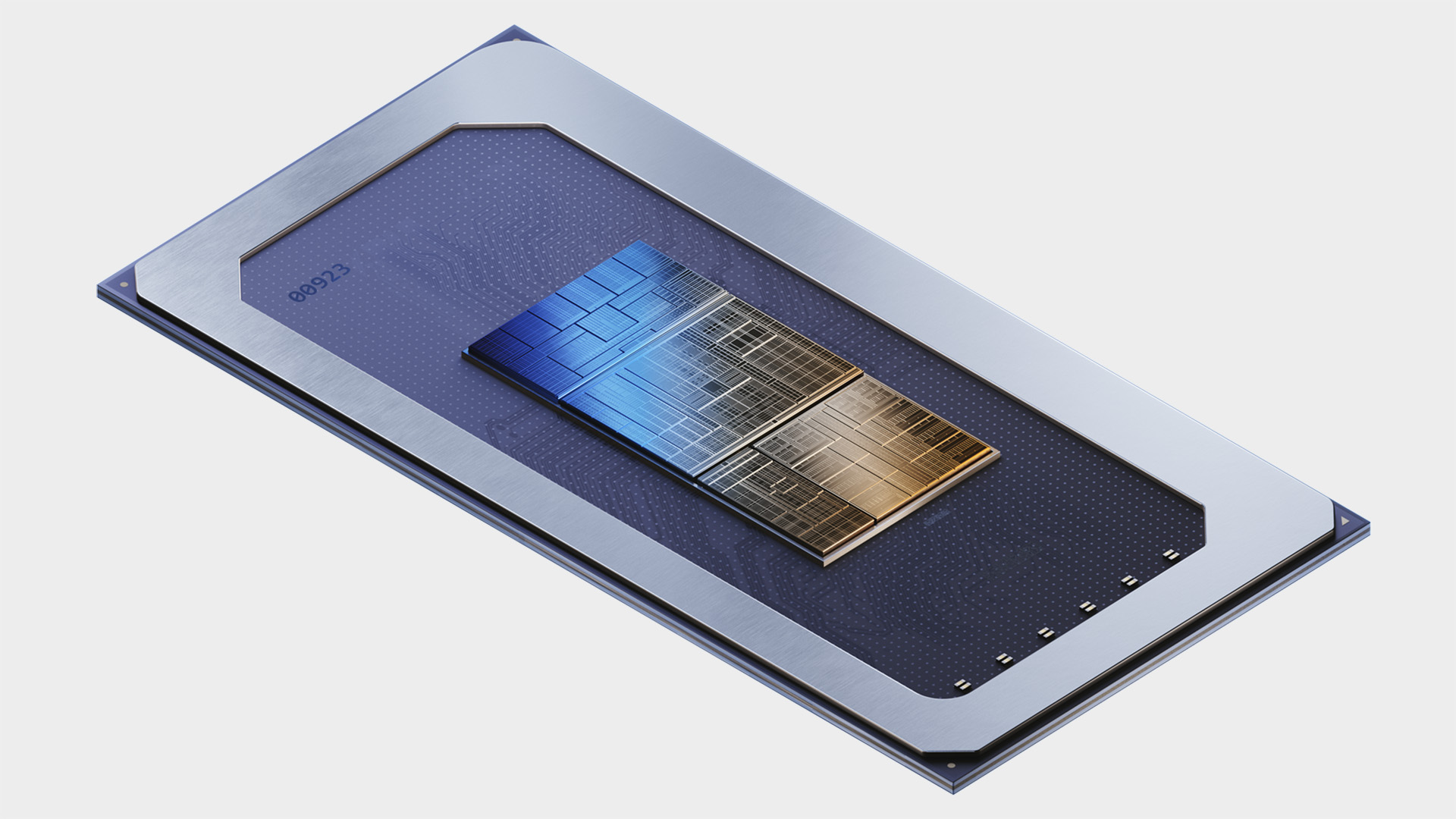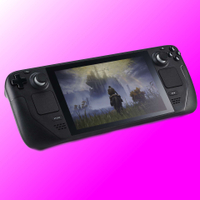Could we see an Intel Meteor Lake powered PC handheld? 'It's really just up to the OEMs'
Meteor Lake may have the graphical grunt for a handheld, but convincing manufacturers to ditch AMD is going to be a long process.

The first ever PC handheld I tried out was an Intel-powered device. That was the Project UFO, powered by a 10th Gen Intel chip. Then I tried the One-Netbook OneXPlayer, fitted with an Intel Core i7 1165G7. While both times I enjoyed the concept of a PC handheld, the performance was never quite up to expectation. I've used many more handhelds since and had a much better time—though they've all been powered by AMD silicon. Intel has no major share of the handheld market these days.
There's the opportunity, at least, for that to change in coming years. Intel's latest mobile chip, Meteor Lake, has a bigger GPU in it that's absolutely capable enough to game on. It uses an architecture not that dissimilar to the one found in Arc Alchemist graphics cards, and Arc driver support will also extend to Meteor Lake to make for a better gaming experience than we're used to on an integrated GPU. Perhaps most importantly, Meteor Lake focuses on power efficiency, and battery life is a sticking point for most handheld PCs today.
There's a chance we could see Intel back in the handheld game. But whether that happens is down to whether anyone takes Intel up the offer, Intel's graphics guru Tom Petersen tells me.
"I mean, if we have a good enough graphics, and we have great game compatibility, and we have good ecosystem engagement. I mean, it's really just up to the OEMs or maybe even a third party to make the leap.
"It's just a long journey, because people have to become comfortable that our graphics mean something, and we have to make to prove it over years and years."
That's probably where Intel is going to struggle competing with AMD: mind-share.

AMD is, by most measures, the dominant player in semi-custom silicon and designing silicon for games consoles, often even beating out the largest player in the gaming GPU industry, Nvidia. AMD's Ryzen 7 7840U chip is the chip of choice for most PC gaming handhelds today, including the OneXPlayer OneXFly, AOKZOE A1 Pro, and Ayaneo Air 1S that we've looked at ourselves. An AMD chip is also at the heart of the Steam Deck, albeit a lower-power chip, and the ROG Ally, which uses a semi-custom version of the 7840U called the Z1 and Z1 Extreme.
Keep up to date with the most important stories and the best deals, as picked by the PC Gamer team.
AMD has that market pretty well locked up today, and while that's not a guarantee it'll stay that way, Intel doesn't just have to offer a performant mobile GPU, but a reason for existing handheld PC manufacturers to make the switch from the processors they're already used to using.
Petersen also expects it will be a long road to convincing laptop makers to depart from tried and tested discrete Nvidia GPUs alongside Intel graphics in their machines.

"There's no question that a lot of these mobile platforms are going to have an Nvidia GPU in it, because there's an end user preference so we have a lot to do to win their trust and transition that demand to Arc integrated graphics," Petersen says.
"There's end user demand for the Nvidia graphics experience. And they want the game compatibility. Sometimes they just like Jensen. So at the end of the day there's a preference which results in OEMs fulfilling with hardware. So our challenge at Intel is to change that and the way we change that as we get better products, better performance, better value proposition over time, and then better compatibility. It's a long walk."
It seems unlikely that Meteor Lake will immediately turn into the chip of choice for handheld gaming PCs, then. AMD seems to have that market all wrapped up for the moment and Nvidia has reportedly scored the Switch 2 hardware contract, too. Yet Intel may be the company to eventually offer some competition to these two in the low-power graphics space—as Petersen says in reference to PC handhelds, "new markets are good"—but don't expect a shift right away.
Steam Deck review: Our verdict on Valve's handheld.
Best Steam Deck accessories: Get decked out.
Steam Deck battery life: What's the real battery life?

Jacob earned his first byline writing for his own tech blog. From there, he graduated to professionally breaking things as hardware writer at PCGamesN, and would go on to run the team as hardware editor. He joined PC Gamer's top staff as senior hardware editor before becoming managing editor of the hardware team, and you'll now find him reporting on the latest developments in the technology and gaming industries and testing the newest PC components.


